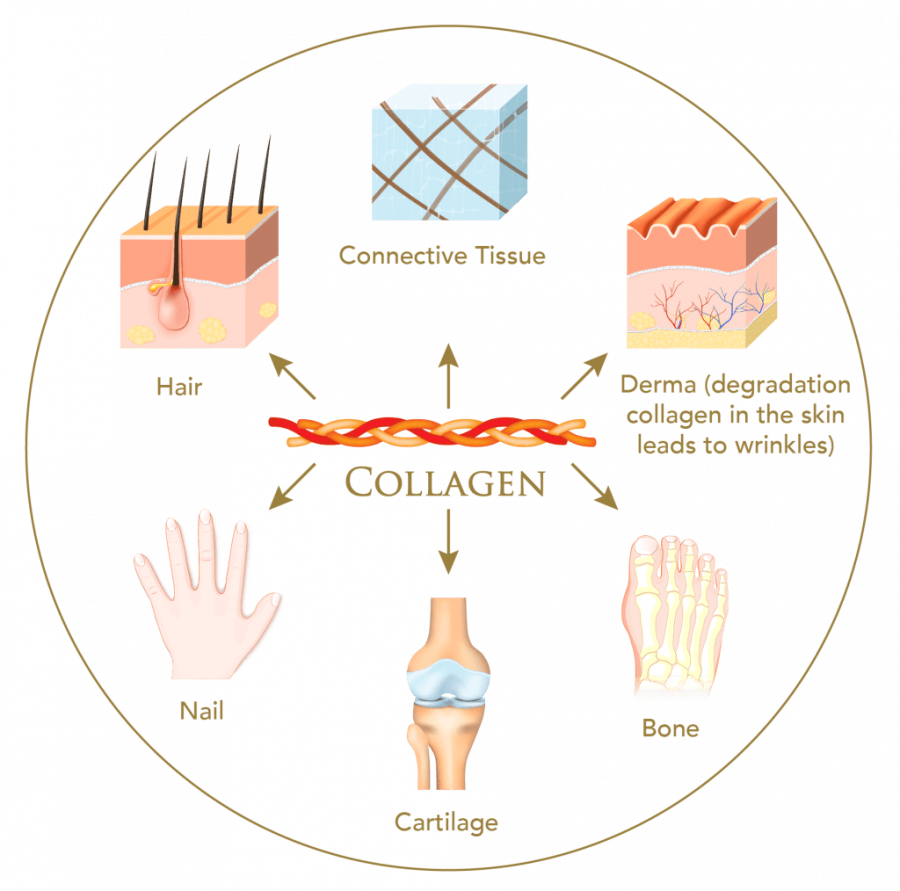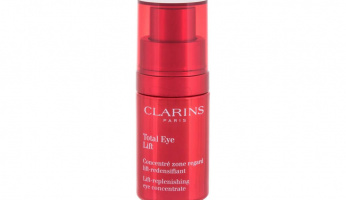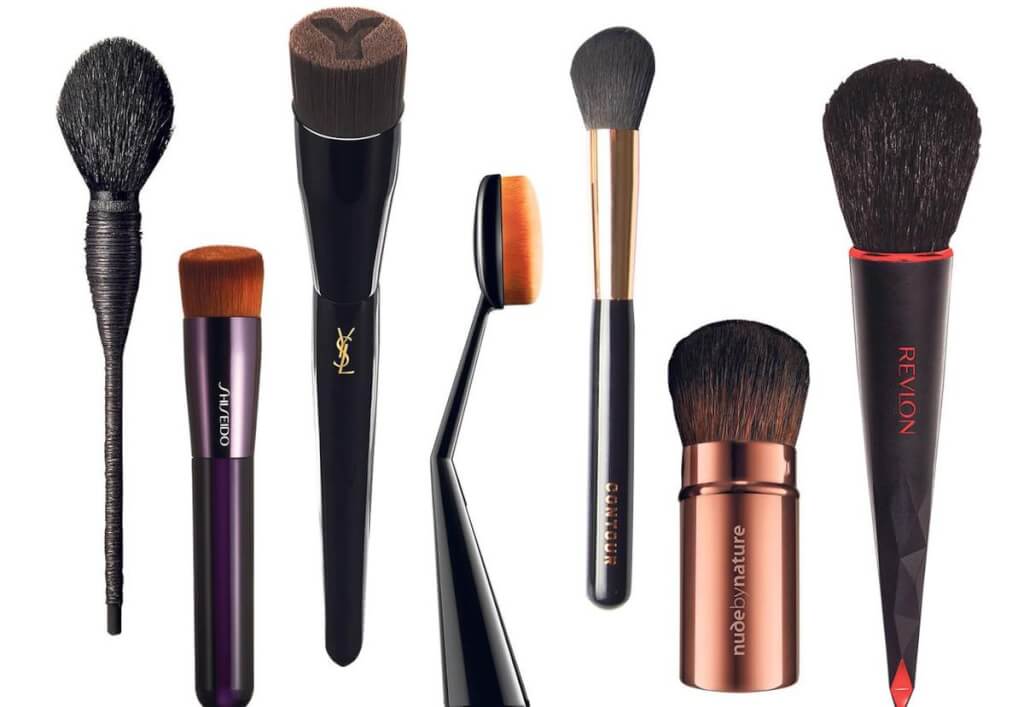How To Stimulate Collagen Production In Skin: Complete Guide
Looking and feeling great doesn’t just come from the proteins in our food. Increasing collagen production in the body is a top way to get you looking and feeling as young as you feel.
But there’s good news.
Increasing collagen production can come from easier avenues than expensive hydration skin creams.
What does collagen do for the body?
Collagen is a protein that does much more than prevent wrinkles. It’s one of the most abundant proteins in your body. Secretly, collagen has been doing its job since the day you were born.

Collagen molecules aren’t just in your skin; collagen is in your organs, blood vessels, bones, muscles, tendons, ligaments, intestinal lining, and your other connective tissues.
When the production of collagen drops as you age, you may find your body suffering from;
- Crepe-like skin and wrinkles
- Weaker and less substantial muscles
- Worn cartilage leading to joint pain or osteoarthritis
- Ligaments and tendons that become stiffer and less flexible
- Thinning of the lining of your digestive tract due to gastrointestinal problems
What destroys collagen?
Although you can’t measure collagen in your body, you’ll know when the aging process starts to reduce your collagen levels. After that, you’ll begin to see issues for the body.
However, you don’t need to wait for age to do the damage.
Poor collagen production levels also come from;
- Poor diet
- A sedentary lifestyle
How is collagen produced in the body?
Here is where dietary protein and amino acids come into play. The body naturally produces collagen by breaking down dietary protein into amino acids.
These amino acids are essential in building the various types of protein the body needs to thrive.
How do you increase collagen naturally?
Amino acids, essential for collagen formation, are nutrients derived most naturally from eating protein-rich foods. These include white meat, fish, eggs, beans, and dairy items.
Combining dietary protein into amino acids also relies on minerals such as copper, zinc, and Vitamin C.
You can get Vitamin C to aid collagen production by eating citrus fruits. But you can also increase your Vitamin C by eating plenty of broccoli, greens, tomatoes, red and green peppers, and fruits.
Also, eat plenty of lean meats, shellfish, beans, and whole grains to get your minerals copper and zinc.
Ensuring your body gets everything it needs to absorb nutrients and process them efficiently is an essential part of the collagen production process. As mentioned, you can do this is by eating a nutritious and balanced diet.
But, as the body ages and finds it more challenging to produce collagen, you may also need to take dietary supplements.
The 4 best sources of collagen
Boosting collagen naturally is one of the best ways to get collagen into your body.
Some of our favorite sources of natural collagen include;
1. Vitamin C
Foods rich in Vitamin C are vital for processing hyaluronic acid – an acid praised for soothing painful joints and speeding up recovery time.
It’s been suggested that hyaluronic acid can help boost collagen production in the body. However, although naturally found in the body, it will decrease as we age.
Eat plenty of oranges, strawberries, red peppers, kale, Brussels sprouts, and broccoli to improve Vitamin C and amino acids.
This can increase hyaluronic acid and collagen levels inside and outside the body. If this is a struggle for you, you can also purchase hyaluronic acid at drugstores.
2. Cilantro
Herbs can also be incredibly beneficial in boosting collagen production. For example, Cilantro (coriander leaf) is commonly used for its flavor and skincare benefits.
The appearance of advanced aging can be triggered by free radicals found in your bloodstream, which break down healthy skin cells.
But linolenic acid found in Cilantro fights these free radicals due to its antioxidants. So, you can either eat Cilantro fresh in leaf form or find Cilantro extract as an oral detoxifying agent.
3. Algae
With the popularity of marine plants on the rise, you may have noticed algae advertised more regularly as part of any beauty regime.
Most skin damage, other than aging, comes from ‘oxidation’ (the damage caused by exposure to harmful elements like pollution). Algae can be an essential method to halt this oxidation.
You should find Algae in the form of oral supplements in most health food stores.
4. Ginseng
The consumption of the Panax Ginseng plant is a well-known method to reduce the anti-aging effects. In addition, Ginseng has been known to promote collagen growth, help skin elasticity, and preserve its vitality against UVB sun damage.
As a more natural method, Ginseng comes without the adverse effects of pharmaceutical products.
Instead, try a ginseng supplement or herbal tea containing Ginseng.
What stimulates collagen production?
Eating a healthy, balanced diet full of all the protein, amino acids, and nutrients you need may well be enough to boost collagen production.
But as the unwanted signs of aging become apparent, you may want to include extra collagen supplements in your diet.
Some of which include:
- AFC Japan Tsubaki Collagen Drink. Beneficial for overall health, including skin, hair, and nails, this collagen drink is a new skincare product with collagen-boosting benefits that works at an optimum level by delaying the skin aging process through its advanced scientific formula.
- Try hydrolyzed collagen, otherwise known as collagen peptide powder. This powder can be easily added as a dissolvable product in sauces, soups, smoothies and beverages.
- You can try skin creams that contain synthetic collagen, although there’s no evidence proving its effectiveness.
However, skincare creams containing collagen may help by adding a film-like layer to the top of your skin. This layer can act as a barrier to harsh environmental elements like pollution and reduce water loss.
Never miss the sunscreen
Covering any naked skin with high-quality sunscreen is one of the most important ways to increase collagen production and reduce skin cancer risks.
Because UV exposure from the sun can contribute to the breakdown of collagen in the skin, protecting yourself early can reduce or prevent the appearance of fine lines and wrinkles.
It’s never too early to start wearing sunscreen daily or whenever you leave the house. Always choose a broad-spectrum sunblock with at least SPF 30 or more.
Final Thoughts
Because your skin is the body’s largest organ, you’ll find more benefit from eating healthy and protecting your skin’s health from excessive sun exposure.
In addition, nourishing your body from the inside out is one of the best ways to boost collagen production.











